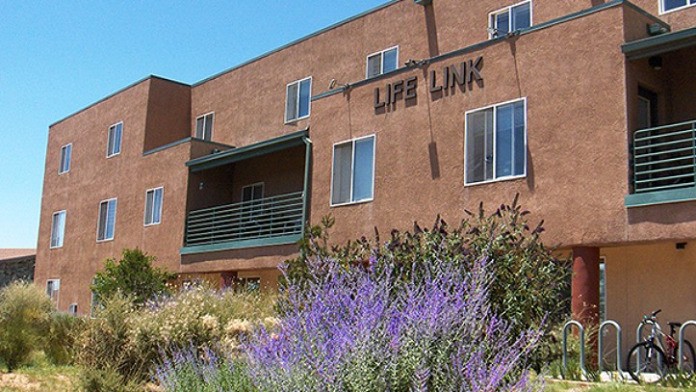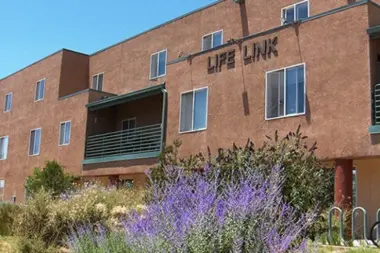About The Life Link
Their therapeutic setting is meant to be instructive, caring and encouraging. They offer a secure area where patients can experiment with and make healthy lifestyle changes at their own speed. Their CRA Family Training, or CRAFT, program is a non-confrontational, empirically based intervention that’s intended to assist worried family members or partners in entering treatment.
This support can come from spouses, siblings, friends, or family. Research has demonstrated that this program is efficacious in addressing treatment-resistant substance abuse in therapy settings. Additionally, it equips concerned close ones with enhanced problem solving and self care skills.
For patients with co-occurring disorders or substance abuse, they provide an intensive outpatient program (IOP). The IOP helps clients in the process of change and recovery by using the same evidence based approaches as their other programs along with therapeutic, educational and social strategies. The IOP lasts a minimum of 12 weeks and offers between 10 and 16 hours of programming each week.
At their state licensed Community Mental Health Center, they assist people dealing with co-occurring mental illnesses such as depression, anxiety and bipolar disorder. In addition to a staff psychiatrist who can prescribe and oversee medication as needed, they have counselors on staff who are highly skilled and knowledgeable about a variety of mental health issues.
For people who require structure and independence while pursuing recovery from mental illness and substance abuse, they offer 30 permanent supportive housing units. To live in these units, clients must meet with community support workers, counselors and employment staff to develop and maintain individualized treatment plans.
Latest Reviews
Rehab Score
Gallery


Other Forms of Payment
Private insurance refers to any kind of healthcare coverage that isn't from the state or federal government. This includes individual and family plans offered by an employer or purchased from the Insurance Marketplace. Every plan will have different requirements and out of pocket costs so be sure to get the full details before you start treatment.
Self-pay involves paying for treatment out of your own pocket. You can use savings or credit, get a personal loan, or receive help from family and friends to fund your treatment. If you don't have insurance or your insurance plan doesn't cover a specific program, self-pay can help ensure you still get the care you need.
Financial aid can take many forms. Centers may have grants or scholarships available to clients who meet eligibility requirements. Programs that receive SAMHSA grants may have financial aid available for those who need treatment as well. Grants and scholarships can help you pai for treatment without having to repay.
Medicaid is a state based program that helps lower-income individuals and families pay for healthcare. Medicaid covers addiction treatment so those enrolled can use their coverage to pay for rehab. When a program accepts Medicaid the client often pays very little or nothing out of their own pocket.
Addiction Treatments
Levels of Care
Outpatient Programs (OP) are for those seeking mental rehab or drug rehab, but who also stay at home every night. The main difference between outpatient treatment (OP) and intensive outpatient treatment (IOP) lies in the amount of hours the patient spends at the facility. Most of the time an outpatient program is designed for someone who has completed an inpatient stay and is looking to continue their growth in recovery. Outpatient is not meant to be the starting point, it is commonly referred to as aftercare.
Inpatient rehabs are often clients' first stage of treatment following detox, and many, but not all, provide medically supervised detox services in the same inpatient facility. Clients in inpatient treatment receive intensive clinical support and supervision. They reside at the treatment center for the duration of the program and typically engage in multiple addiction counseling sessions and/or recovery-focused life skills courses each day. Many treatment centers also offer evidence-based complementary therapies, such as yoga and meditation.
The Life Link’s Intensive Outpatient Substance Abuse Treatment Program (IOP) is an intensive treatment program that provides 9 hours of programming per week, for a total of 12 weeks. Clients meet three days a week. They offer a therapeutic and skill-building program that includes group therapies and group-specific programs for men and women, 18 and older, who have a substance abuse or co-occurring problem.
Rehab aftercare programs promote clients' long-term recovery by providing a robust continuum of care aligned with clients' evolving needs. Because addiction is a chronic disease prone to relapse, rehab aftercare services are highly client-focused and uniquely responsive to clients' changing medical, mental health, and social circumstances. Case managers and care teams collaborate with clients, assess their goals and needs, and provide access to recovery-focused resources, such as peer coaching, employment assistance, and relapse prevention services.
Consulting intervention services can help you plan an effective drug intervention in New Mexico. An intervention specialist will assess your loved one's circumstances and suggest the best approach to take for the intervention itself and for follow-up treatment. Intervention services can also provide follow-up care for family members, regardless of whether the individual chooses to enter treatment.
At certain points in the recovery process, it's important to have support available 24/7. 24-hour clinical care offers a safe environment in which to recover from drug or alcohol addiction in peace, knowing medical detox and other treatment will happen with professionals on hand.
Treatments
The goal of treatment for alcoholism is abstinence. Those with poor social support, poor motivation, or psychiatric disorders tend to relapse within a few years of treatment. For these people, success is measured by longer periods of abstinence, reduced use of alcohol, better health, and improved social functioning. Recovery and Maintenance are usually based on 12 step programs and AA meetings.
Each drug rehab in New Mexico offers unique amenities and treatment methods. Common aspects of treatment include group and individual counseling, recreational therapy, medication management, and healthy living. Aftercare is often provided to prevent relapse.
Many of those suffering from addiction also suffer from mental or emotional illnesses like schizophrenia, bipolar disorder, depression, or anxiety disorders. Rehab and other substance abuse facilities treating those with a dual diagnosis or co-occurring disorder administer psychiatric treatment to address the person's mental health issue in addition to drug and alcohol rehabilitation.
A combined mental health and substance abuse rehab has the staff and resources available to handle individuals with both mental health and substance abuse issues. It can be challenging to determine where a specific symptom stems from (a mental health issue or an issue related to substance abuse), so mental health and substance abuse professionals are helpful in detangling symptoms and keeping treatment on track.
Opioid rehabs specialize in supporting those recovering from opioid addiction. They treat those suffering from addiction to illegal opioids like heroin, as well as prescription drugs like oxycodone. These centers typically combine both physical as well as mental and emotional support to help stop addiction. Physical support often includes medical detox and subsequent medical support (including medication), and mental support includes in-depth therapy to address the underlying causes of addiction.
Programs
Adult rehab programs include therapies tailored to each client's specific needs, goals, and recovery progress. They are tailored to the specific challenges adult clients may face, including family and work pressures and commitments. From inpatient and residential treatment to various levels of outpatient services, there are many options available. Some facilities also help adults work through co-occurring conditions, like anxiety, that can accompany addiction.
Clinical Services
Cognitive Behavioral Therapy (CBT) is a therapy modality that focuses on the relationship between one's thoughts, feelings, and behaviors. It is used to establish and allow for healthy responses to thoughts and feelings (instead of unhealthy responses, like using drugs or alcohol). CBT has been proven effective for recovering addicts of all kinds, and is used to strengthen a patient's own self-awareness and ability to self-regulate. CBT allows individuals to monitor their own emotional state, become more adept at communicating with others, and manage stress without needing to engage in substance abuse.
Group therapy is any therapeutic work that happens in a group (not one-on-one). There are a number of different group therapy modalities, including support groups, experiential therapy, psycho-education, and more. Group therapy involves treatment as well as processing interaction between group members.
In individual therapy, a patient meets one-on-one with a trained psychologist or counselor. Therapy is a pivotal part of effective substance abuse treatment, as it often covers root causes of addiction, including challenges faced by the patient in their social, family, and work/school life.
Motivational Interviewing (MI) is a clinical approach to helping people with substance abuse issues and other conditions shift behavior in positive ways. It is more goal-oriented than traditional psychotherapy, as MI counselors directly attempt to get clients to consider making behavioral change (rather than wait for them to come to conclusions themselves). Its primary purpose is to resolve ambivalence and help clients become able to make healthy choices freely.
Trauma therapy addresses traumatic incidents from a client's past that are likely affecting their present-day experience. Trauma is often one of the primary triggers and potential causes of addiction, and can stem from child sexual abuse, domestic violence, having a parent with a mental illness, losing one or both parents at a young age, teenage or adult sexual assault, or any number of other factors. The purpose of trauma therapy is to allow a patient to process trauma and move through and past it, with the help of trained and compassionate mental health professionals.
If you attend couples therapy in New Mexico, you can expect to work with the therapist and each other to identify emotions, explore your history, and learn new skills to help you better meet relationship challenges. These skills may include problem solving, conflict resolution, and anger management.
CRAFT (Community Reinforcement Approach Family Training) is a cognitive-behavioral program designed to support individuals with problematic substance abuse to engage in treatment options by educating family members to encourage their loved one into treatment. Additionally, CRAFT educates family members how to improve their own lives, regardless of whether their significant other enters treatment.
Life skills trainings involve all the skills a person must have in order to function successfully in the world. These include time management, career guidance, money management, and effective communication. Truly successful addiction recovery is based on the ability to not only live substance-free, but to thrive. Life skills teaches the practical necessities of functioning in society, which sets clients up for success in life, and therefore sobriety.
Through recreational therapy, you engage in activities that support your mental and physical health, as well as promote your addiction recovery. The activities might include team sports, creative arts, or yogurt to help manage your stress, improve your mood, and build a supportive network of individuals who help you maintain your long term sobriety.
Creative arts therapy gives you the opportunity to express yourself in ways beyond words. Your therapist will help you use creative activities to explore emotions and process difficult situations.
Amenities
-
Residential Setting
-
Private Rooms
-
Private Setting
Staff & Accreditations
Staff
Michael DeBernardi, PsyD, MS
CEO
Christy O’Neil
CFO
Pamela Yus, MA, LADAC, CPRP
Director of Operations & Quality Enhancement
Lynn Sanchez, MA, LPCC
Human Trafficking Aftercare Director
Krista L. Brening, LPCC, LPAT
Treatment Services Clinical Manager
Yvette Medina, CPSW
CCSS Program Manager
Montse Oseguera, MA, LCSW
CCSS Clinical Supervisor
Peter Schmitt
Clubhouse Program Manager
Accreditations

The Commission on Accreditation of Rehabilitation Facilities (CARF) is a non-profit organization that specifically accredits rehab organizations. Founded in 1966, CARF's, mission is to help service providers like rehab facilities maintain high standards of care.
CARF Accreditation: Yes
Contact Information
2325 Cerrillos Road
Santa Fe, NM 87505